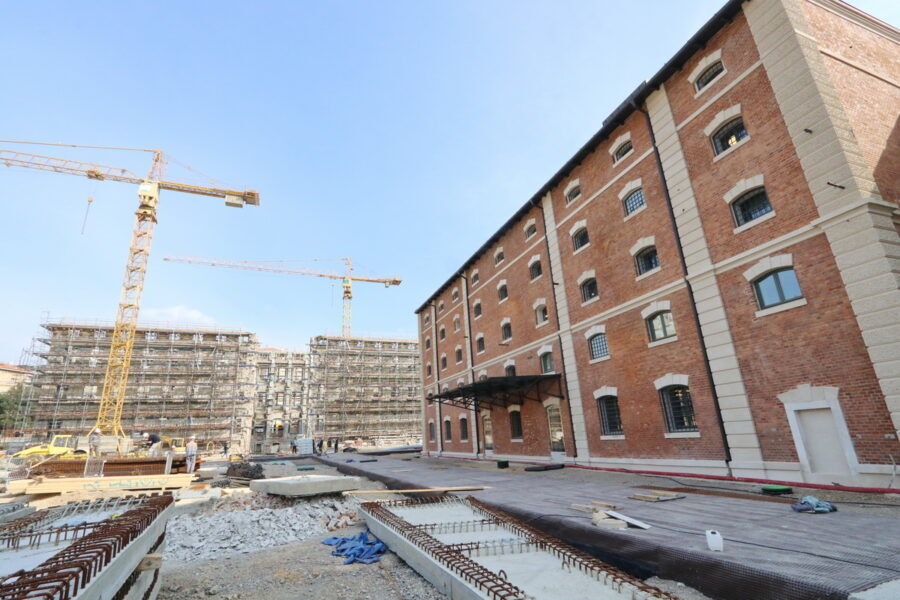
Within the EU project “ForHeritage”, which aims to create and implement tools for integrated management of cultural heritage, a Management Plan for the Benčić complex is being prepared
The City of Rijeka is an EU project partner in “ForHeritage – Excellence for Integrated Heritage Management in Central Europe, which aims, by using already developed tools, to support an integrated approach to heritage management. This requires close cooperation between public and private entities involved in the protection and management of cultural heritage and resources.
In the first half of the project, project partners, one of which is the Institute for Development and International Relations from Croatia, have developed six heritage management tools. These are manuals for better management. For example, the financial manual specifies and explains the different manners of financing and maintaining buildings, while the manual aimed at including the audience suggests manners to effectively attract the audience, and also to connect with the neighbourhood where the cultural heritage building is located. The EU project has developed an innovative approach to creating a management plan, with the participation of the profession, marketing managers, as well as the citizens themselves.
The tools developed within the ForHeritage project will be tested in four pilot projects, and one of the pilot cities is Rijeka. The others are Ljubljana, Cuneo in Italy and Szczecin in Poland.
In Rijeka, the developed tools will be tested within the Benčić complex, where the Rijeka cultural quarter is currently being born in the premises of the former industrial complex. The Museum of Modern and Contemporary Art has already been opened in the Benčić complex, the Sugar Refinery hosts the Rijeka Civic Museum, and the opening of the Children’s House is expected this month. Currently, works are underway on the refurbishment of the Rijeka Civic Library, which should be opened next year in spring, as well as on the refurbishment of the square, i.e. public areas with the respective infrastructure. This has been the largest investment in culture since Croatia’s independence, worth HRK 250 million, and if we add to that the investment in the refurbishment of the ship Galeb, which forms an integral part of the EU project within which the Refinery Palace has been renewed, we talk about the investment worth more than HRk 300 million.
The City of Rijeka is currently in the process of drafting the document “Management Plan for the Benčić complex”, which aims to develop a management structure and management strategy and proposed models of managing the Benčić complex in cooperation with all managers of cultural institutions that will operate within the Benčić complex. The management plan will be drawn up by thematic units, taking into account that all topics are related and that the Benčić complex is a cultural heritage that exists within a protected cultural unit.
Through the ForHeritage project, Rijeka has been given an opportunity to incorporate examples of good cultural heritage management practice into its management plan for the Benčić complex, which will be applicable, participatory and, for the time being, unique in Croatia. Namely, the Benčić complex, in which several Rijeka cultural institutions will operate in the same place, is one of its kind in Croatia, which development and future management is seen as a unique entirety.
The project “ForHeritage – Excellence in Integrated Cultural Heritage Management in Central Europe” is co-financed under the Interreg Central Europe Programme, and is expected to last from March 2020 to February 2022.

